It’s easy to get caught up in the excitement of horse ownership, but the reality is that being a horse owner isn’t compatible with every life situation. Fortunately, there are other ways to get plenty of quality horse time. Consider the pros and cons of taking riding lessons, leasing a horse, and owning a horse of your own to determine which option is best for you.
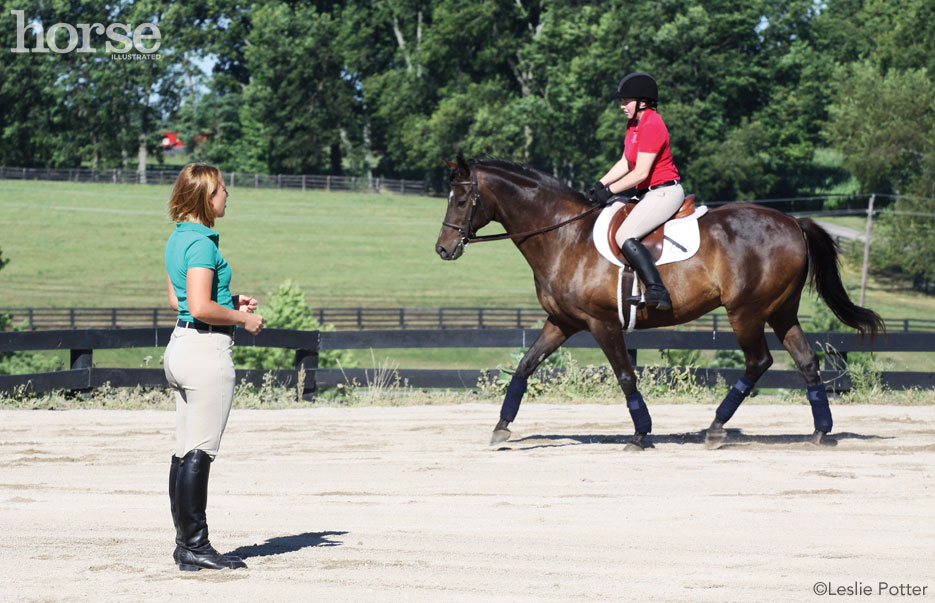
Riding Lessons
For most urban and suburban riders, formal riding lessons are the most obvious choice when it comes to getting saddle time. Lessons go beyond the superficial experience of a pony ride or tourist trail excursion by teaching you the hows and whys of communicating with a horse under saddle. Typically, students ride once per week, but many instructors will allow you to take more lessons if you’re eager to progress, or fewer if you need to stretch your budget.
Some programs offer several different disciplines so that you can learn the basics before deciding which equestrian sport interests you most. But if you’ve already got a discipline in mind, look for a barn that specializes in your sport.
Pros:
While it’s possible to learn to ride without formal instruction, a qualified instructor will be able to guide you through the process and help you avoid newbie mistakes that could be dangerous to you or the horse you ride.
You’ll also have the opportunity to ride different lesson horses, and that will make you a more well-rounded, adaptable rider. As you get better, you’ll be able to move from the beginner horses to more advanced mounts so that you continue to improve your skills. Riding lessons aren’t just for beginners; even Olympic-level riders have coaches. Although many riders aspire to own a horse one day, you could spend your entire career from beginner to advanced riding school horses without ever really missing out.
Once you’ve learned the basics in a one-on-one setting, group lessons are a fun way to get to know other riders. You can learn by watching one another, and riding classmates may ask questions you didn’t even know you had. If your barn participates in schooling shows, having your fellow riders around can add a feeling of camaraderie to what is usually a solo sport.
From a practical standpoint, lessons are the ideal option for horse lovers who are on a budget. The costs are much lower than those required to own or lease a horse, and they’re consistent. You’ll pay the same from week to week with no surprise vet expenses to worry about. And if your lesson horse has to take a break due to injury or illness, your instructor will have another horse for you to ride. Making the commitment to ride once a week is more realistic than going out to the barn to tend to your own horse every day. If you have a busy work schedule or home life, or have other hobbies that you don’t want to give up, a weekly riding lesson offers horse time without much sacrifice.
Cons:
Typically, your time with a lesson horse will be spent grooming, tacking up, riding and untacking. While this is enough to improve your riding skills, you rarely get the opportunity to spend leisurely time with your equine friend because he’s got other students to attend to. When you arrive at the barn for your lesson, you will be expected to adhere to whatever your instructor has planned; you can’t decide to skip your schooling time in favor of a gallop across the fields on a whim.
As a riding lesson student, you also have to be selective in your choice of an instructor. In every state in the U.S. except for Massachusetts, there is no certification process for riding instructors, which means anyone can advertise themselves as a qualified trainer. It’s up to you to do some research to make sure the one you choose will be able to help you reach your goals, even if those goals are just to have fun with horses. Ask for recommendations from other equestrians, and call to see if you can observe a few lessons before signing up.
A great instructor can make your entrance into the horse world a joyous one, but a bad one can sour you on the entire equestrian experience. In order to make the most of your time as a riding student, you’ll need the courage to graciously move on if you find that you’re incompatible with your instructor.
To find a certified instructor, try the Certified Horsemanship Association or American Riding Instructors Association, or your particular breed or sport’s association; the American Quarter Horse Association, United States Hunter Jumper Association, United States Eventing Association, and United States Dressage Federation all certify instructors.
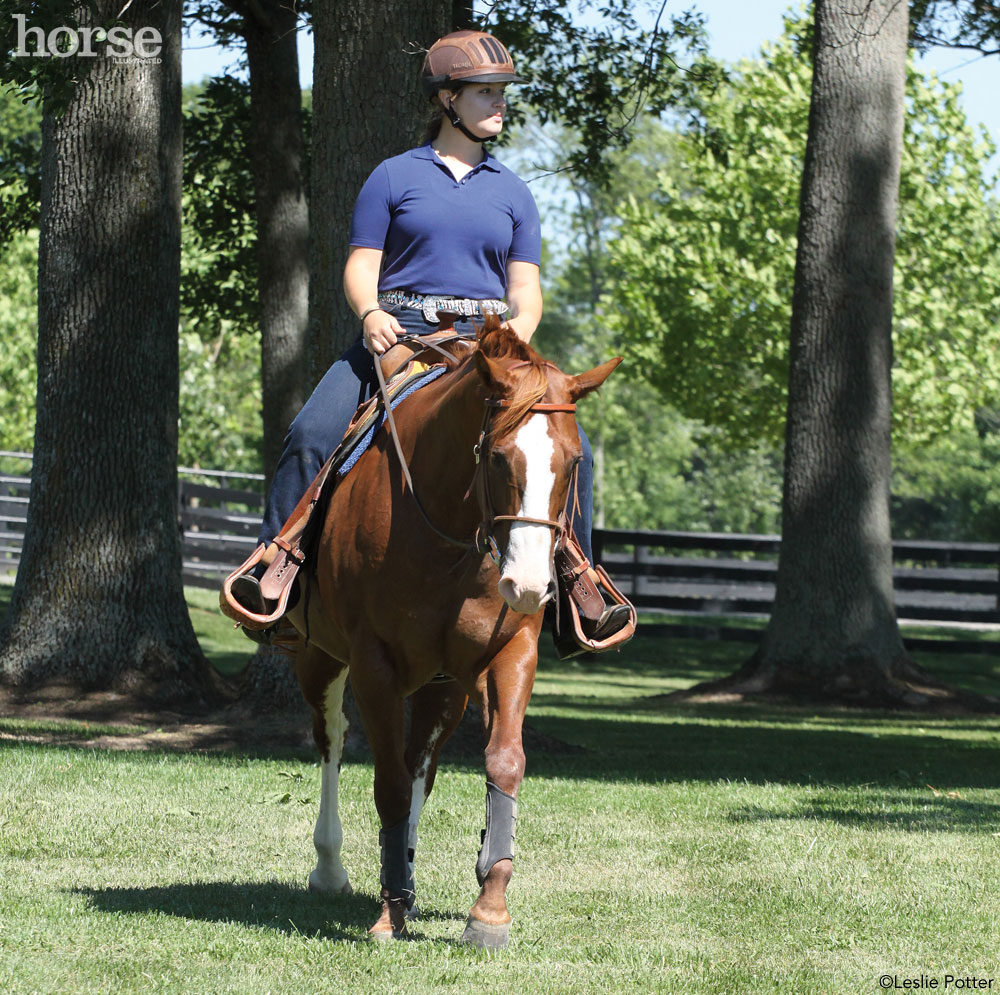
Leasing a Horse
Lease arrangements provide an experience similar to horse ownership without the initial cost or lifelong obligation. Typically, the lessee will be responsible for all or most of the horse’s routine expenses, such as board and farrier bills, in exchange for the ability to ride as much as they want. In a partial lease, the lessee covers part of the regular expenses in exchange for the opportunity to ride a few days a week. Some lesson programs will offer partial leases of lesson horses for students.
Pros:
Leasing is truly a best-of-both-worlds situation for riders who have graduated from basic horsemanship and riding lessons. You have the chance to ride more frequently and in an unstructured environment. You get more time to bond with a horse, and you may be able to take him to shows or other events. A full or partial lease provides the opportunity to experience horse ownership without committing to it until you’re sure you are able to devote the time, energy and money required.
If you find that you’re not able to get out to the barn as much as you thought you would when you signed up for a lease, you can back out (often with a pre-determined notice period). You don’t have to worry about financially supporting the horse and going through the process of finding him a more suitable home because he already has an owner.
Cons:
Most of the potential pitfalls in leasing are the result of poor communication or mismatched expectations between lessor and lessee. It’s imperative to make the lease terms clear, put them in writing and have both parties sign and keep a copy. As the lessee, are you allowed to ride as much as you want, or is there a limit? Can you transport the horse off the property? Who will be responsible for the vet bills if he injures himself in the pasture? What if he injures himself while you’re riding him? Make sure all of this is in the lease agreement.
Although leasing offers a close approximation of the horse-ownership experience, there are limits. You may not be able to take the horse to an out-of-state show or an overnight camping trip. If you want to move him to a different boarding stable, you’ll have to sell the horse’s owner on the idea. In the case of a lesson-horse lease, you may have to schedule your time around your mount’s lesson obligations.
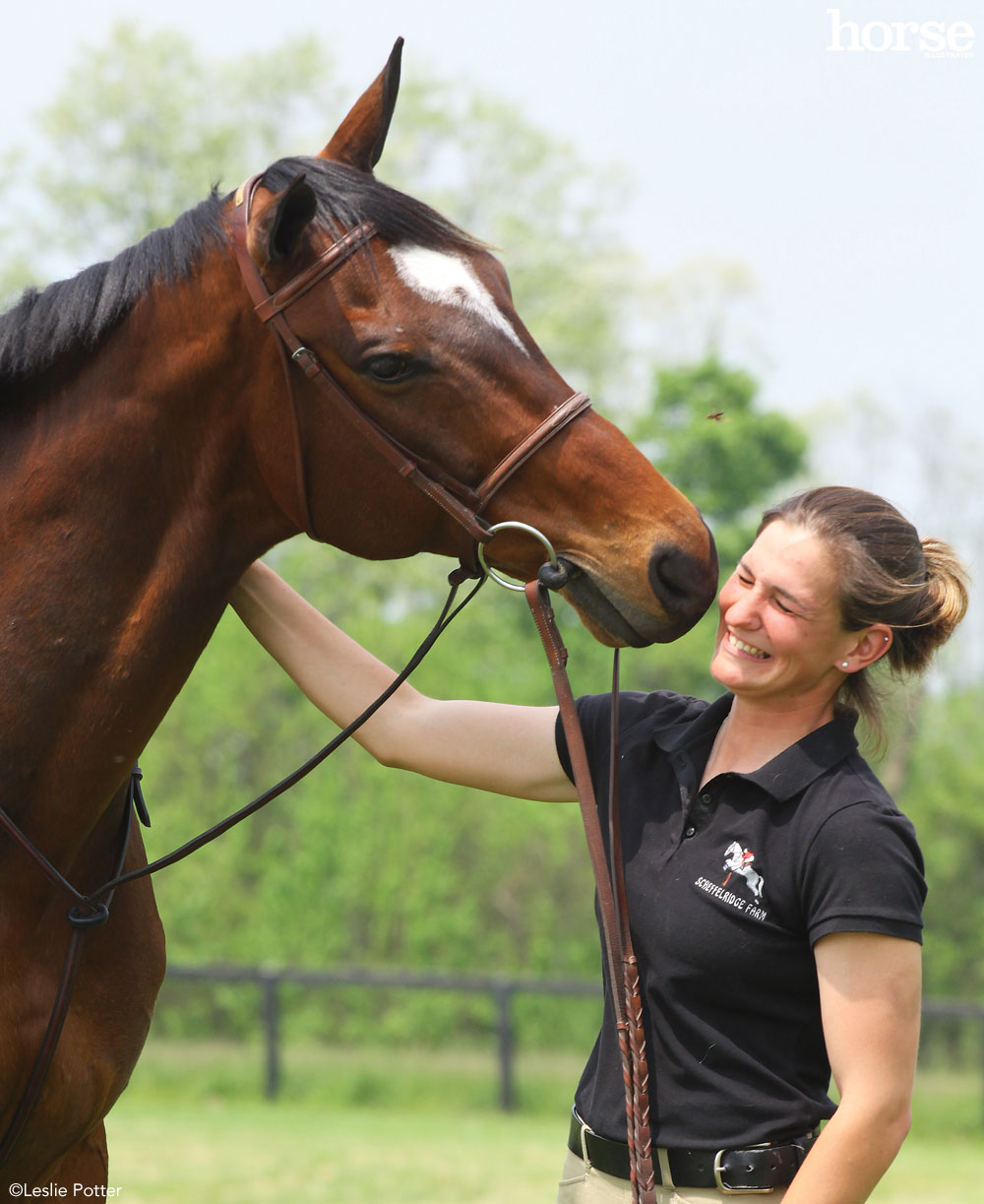
Horse Ownership
Having a horse of your own seems like the ultimate goal when you begin your riding career. The concept is simple: You find a horse to buy or adopt, sign a purchase contract, write a big check, and then live happily ever after with your new equine best friend. At least, that’s the plan.
Pros:
You don’t need to own a horse to develop a deep bond, but it certainly helps. You’ll be the one who spends the most time with him, both in and out of the saddle. You’ll get to know your horse in a way other arrangements don’t always permit. When ownership is at its best, there’s nothing like it.
With your own horse, you have complete freedom of choice when it comes to his care and keeping. Want to move to a new barn, follow the regional show circuit all summer, or dye his mane and tail blue in honor of your favorite sports team? You get to make those decisions. And while a horse’s owner may terminate a lease agreement for any reason and your instructor could move you off your favorite lesson horse or sell him out of the barn, your horse is yours. You are together for life if you choose to be.
Cons:
All of the pros listed above are dependent on your ability to afford them, and that’s the big roadblock to horse ownership for many would-be owners. The initial purchase price doesn’t have to be expensive. You can find horses for free if you look for them, although the wider your price range, the more likely you are to find a horse that suits your needs. Regardless of what you pay to bring your new horse home, the real financial question is whether you are equipped to handle the commitment you’ve just made. As a horse owner, you’re on the hook for board, feed, farrier and vet bills, and more. Unlike a lease situation, you can’t back out when money gets tight. Even if you make the decision to sell your horse, he might remain on the market for months or even years, and he’s on your payroll during that time.
By the same token, you may find that your equestrian interests change or your abilities as a rider improve and the horse you’ve purchased no longer meets your needs. For example, you may have started out thinking the show-ring was your destiny but later discovered that trail riding was your true passion. If your horse proves to be unsuitable for your new activity, are you willing to pay his costs until you can match him up with a new rider?
In addition to financial resources, horses consume a lot of time. Between work, family and other activities, it can be a challenge to find adequate time to devote to your horse. As an owner, there isn’t automatically someone else in your horse’s life to pick up the slack when you simply can’t spend a lot of time at the barn.
There are a variety of ways to bring horses into your life. Take an honest assessment of your riding skills, finances and schedule, and you’ll find the right arrangement for you.
This article originally appeared in the 2015 edition of Your New Horse


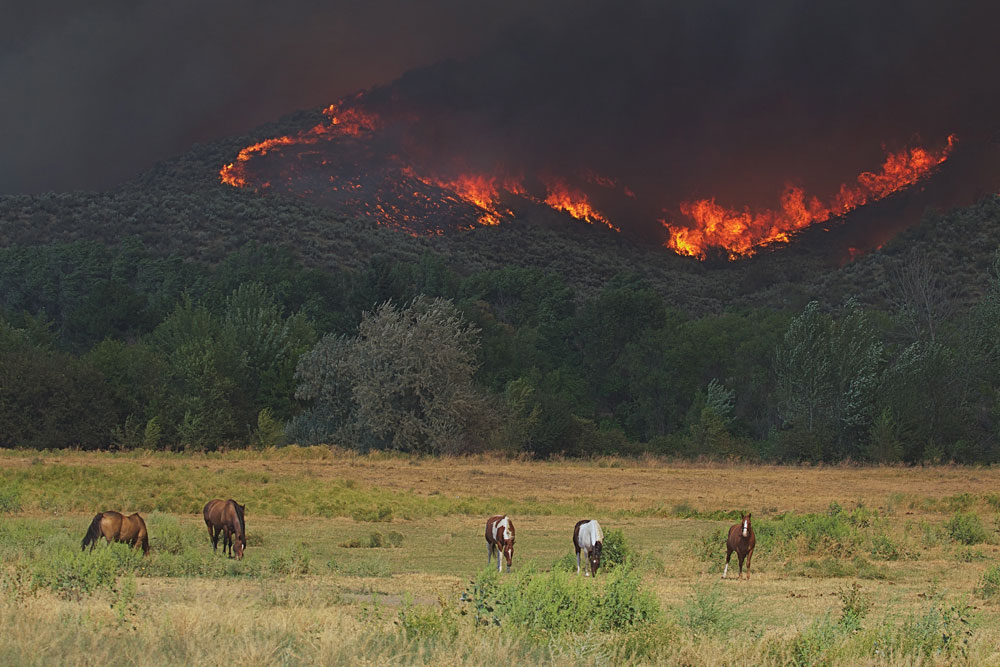
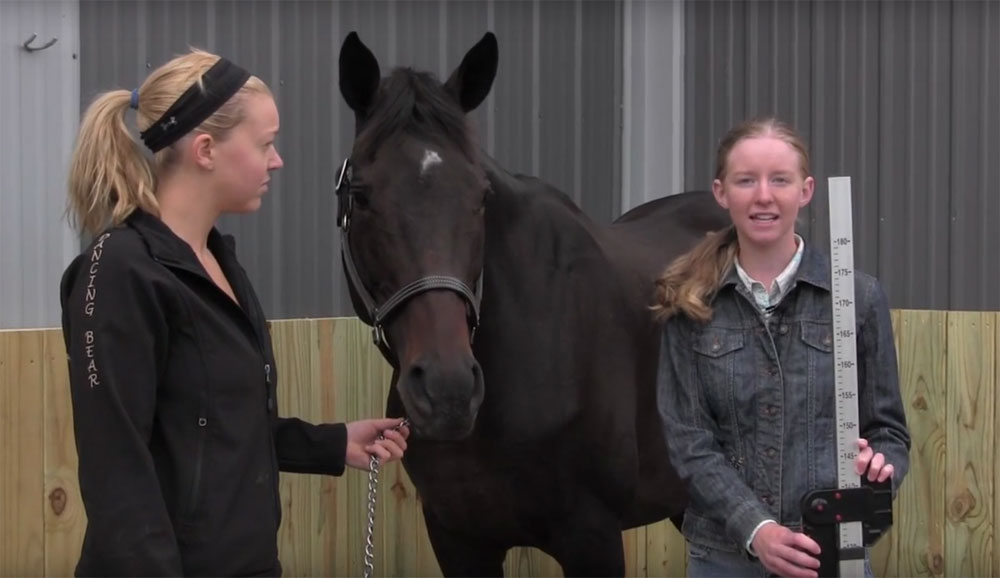

great info
cool
This is a great article. When I first got into riding as an adult I jumped in with both feet and I wish I would have had more people encouraging me to lease first and get some miles in the saddle before throwing all in on a horse.
People will say all the negative points about leasing but there are a lot of perks if you connect with the right person.